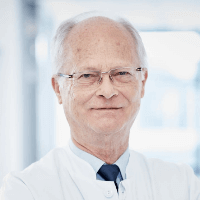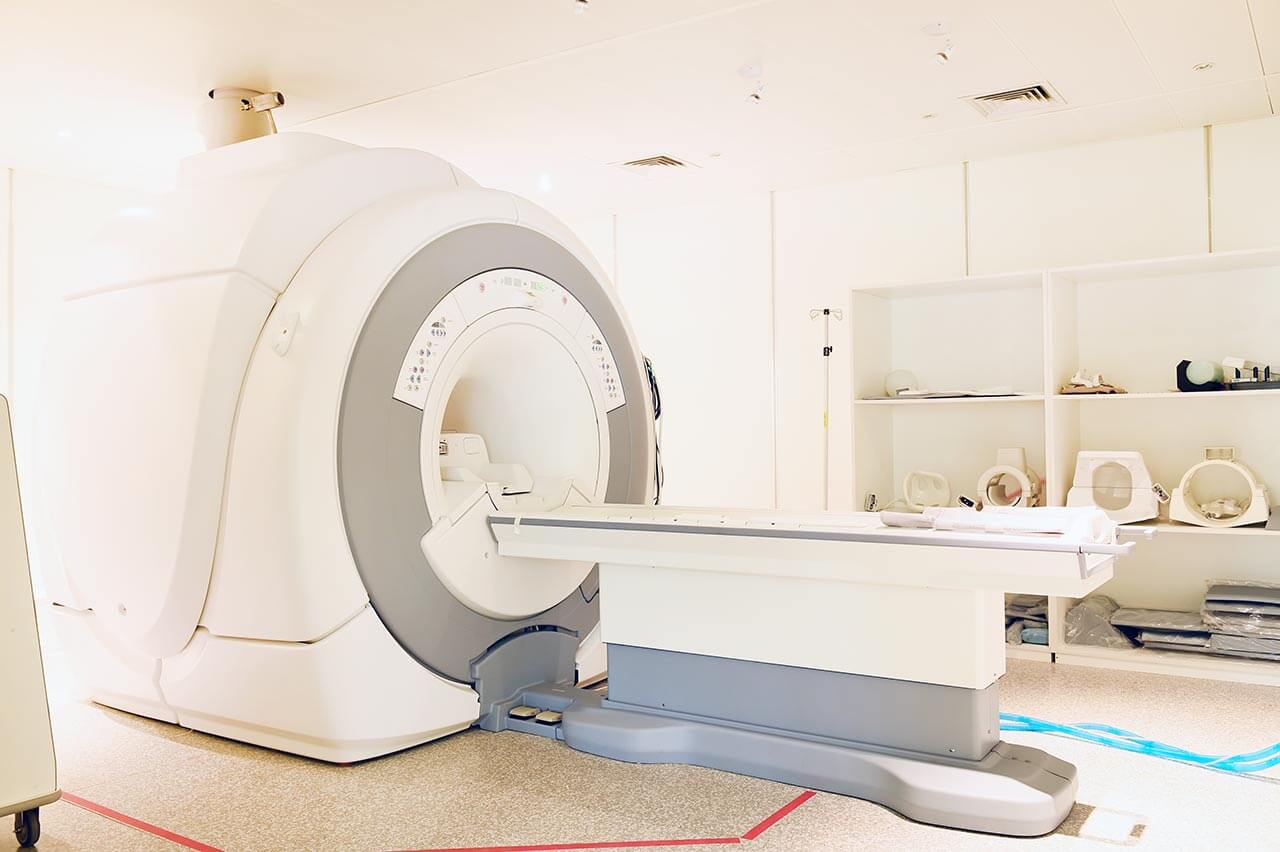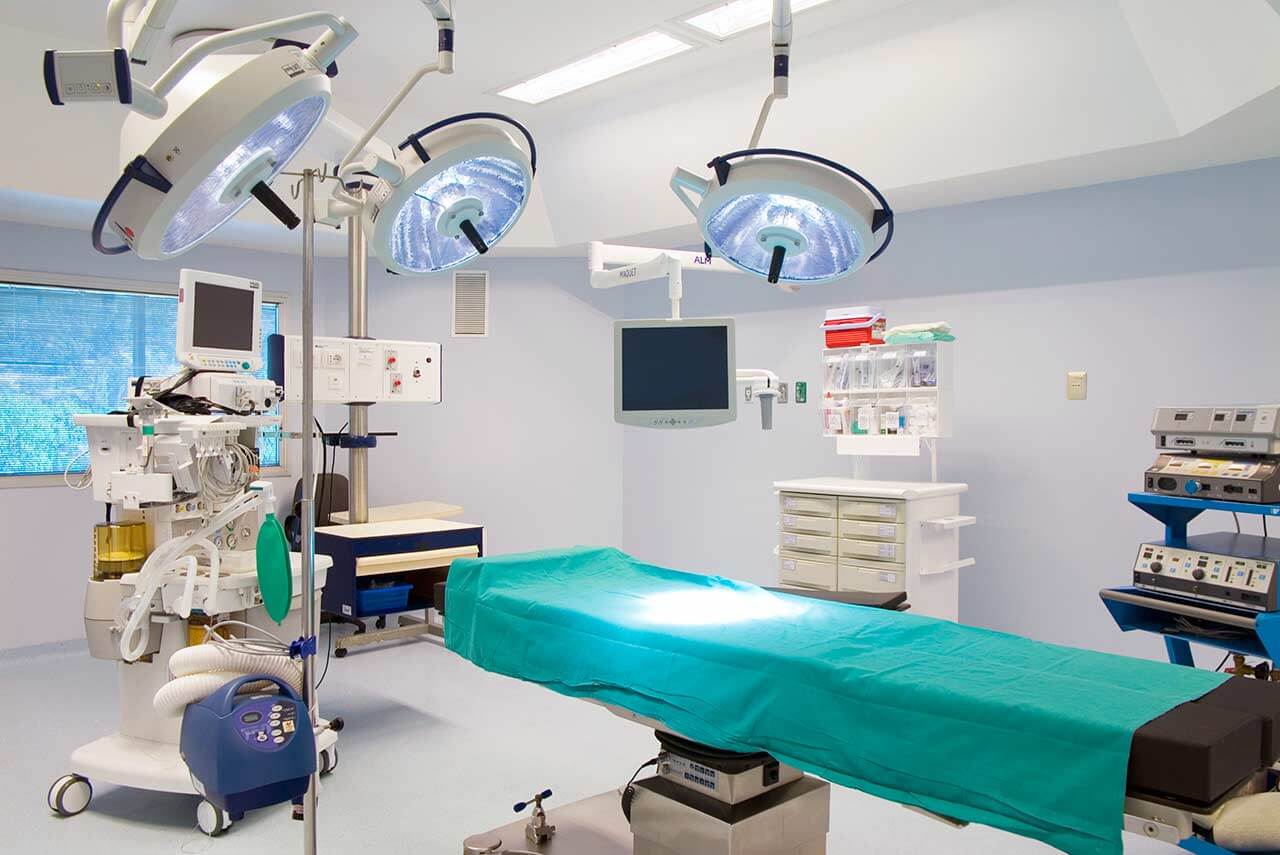
About the Department of Oncology and Surgical Oncology at Medias Cancer Clinic Burghausen
The Department of Oncology and Surgical Oncology at the Medias Cancer Clinic Burghausen specializes in the conservative and surgical treatment of the full range of cancers. The department is one of the leading in the field of its competence in the international medical arena and treats patients with especially complex clinical cases. The priority focuses of the department's medical team include regional chemotherapy, hyperthermia, immunotherapy, surgical oncology and pain therapy. The goal of the department's doctors is to achieve an optimal therapeutic result with minimal damage to the healthy tissues.
The department is headed by Prof. Dr. med. Karl Reinhard Aigner. His long clinical experience in surgical oncology, personal dedication to work and research aimed at the further development of regional chemotherapy, form a unique profile of the department.
The focus of the department's team of doctors is on the health and high quality of life of patients. All treatment methods meet the main guiding principle – tumor destruction with minimal negative impact on the patient.
The main treatment concept is to reduce the size of tumors using highly concentrated regional chemotherapy (RCT). Regional chemotherapy is a local chemotherapy, which acts on a separate anatomical area of the body or organ. In this case, the chemotherapy drug is injected into the artery supplying the tumor. In the course of regional therapy, the tumor absorbs a large amount of cytostatic agent. Immediately after the treatment session, the blood will be purified by chemofiltration, which removes the excess of the drug. Thus, the doctors can significantly reduce the risk of side effects in patients.
The regional chemotherapy is effective in the fight against solid tumors. However, not all types of tumors respond equally to the treatment. The success of therapy largely depends on the type of the blood supply of the tumor. Should the regional chemotherapy be successful, the tumor size will be reduced, which can contribute to the minimal surgical intervention. In the most favorable case, the neoplasm will be completely destroyed without surgery.
The indications for the regional chemotherapy (in accordance with the predicted treatment success) include:
Neoplasms with good response to RCT |
|
Neoplasms with a response to RCT from medium to good |
|
Neoplasms with a response to RCT from low to medium |
|
Other neoplasms |
The spectrum of the department's therapeutic options also includes a combined method of regional chemotherapy followed by immunotherapy. The follow-up immunotherapy purposefully enhances the negative effect of chemotherapy on the tumor and forms antitumor immunity, which reduces the risk of relapse. The immunotherapeutic drugs are selected for each patient individually. Immunotherapy is carried out in the form of vaccination. The combination of regional chemotherapy and customized immunotherapy helps to form antitumor immunity for a longer time and gives the immune system a chance to fight against cancer.
In addition, the department's doctors are recognized experts in the field of hyperthermia. The department provides two types of this procedure – regional and general hyperthermia. When doctors perform regional hyperthermia, the area of the tumor is heated up to 43°C. In this case, the cancerous tissues are destroyed due to direct thermal damage. When doctors perform general hyperthermia, the patient is placed on a special hyperthermic bed, after which the whole body is heated. This procedure increases the blood supply to the tumor, because at a temperature from 38 to 39°C the blood vessels become expanded. Due to the increased blood supply to the area affected by the pathological process, a larger amount of the cytostatic drug will be administered into it during the regional chemotherapy.
The department's range of medical services includes:
Regional chemotherapy |
|
Hyperthermia |
|
Combined regional chemotherapy with immunotherapy (vaccination) | |
Cancer surgery |
|
| Pain therapy |
|
Other therapeutic options |
Curriculum vitae
Prof. Aigner is one of the pioneers in regional chemotherapy. He has been practicing this type of chemotherapy for more than 30 years and today he is one of the most experienced specialists at the international level. The numerous reports and guest operations performed in the USA, Japan, China, Israel, Egypt, Australia and many other countries, as well as more than 200 publications, reports and guest operations within the country, testify to his outstanding experience in the field of regional chemotherapy.
Prof. Aigner received his medical education at the University of Erlangen, where he began his professional career in the field of cardiovascular surgery. At the University of Giessen, he had his habilitation procedure and got Venia Legendi in the methods of regional chemotherapy and their application in a field close to it – cancer surgery. In 1981, Prof. Aigner was the first who developed a technique of isolated liver perfusion using a heart-lung machine. In subsequent years, it was complemented by a wide range of surgical procedures and the use of special catheters, which were designed for isolated organ therapy, including for pancreatic cancer treatment.
From 1986 to 1991, Prof. Aigner headed the Department of Surgery at the Trostberg Hospital on the Chiemsee, and until 2001, the Department of Surgical Oncology at the Asklepios Paulinen Klinik Wiesbaden. From 2002 to 2005, he headed the Department of Surgical Oncology at the Medias Cancer Clinic in Ransbach-Baumbach. Since 2006, Prof. Aigner has been the Medical Director of the Medias Cancer Clinic Burghausen and the Head of the Department of Oncology and Surgical Oncology at the same clinic.
Prof. Aigner is a member of many professional societies, including the German Society of Surgery (DGCH), the Professional Association of German Surgeons (BDC), the German Cancer Society (Experimental Cancer Research Section (AEK)), the European Association for Cancer Research (EACR), and the American Society of Clinical Oncology (ASCO), the Society of Surgical Oncology (SSO).
Photo of the doctor: (c) Medias Klinikum GmbH & Co. KG




